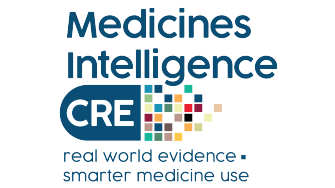
What is the Project Incubator Program?
The Medicines Intelligence Centre of Research Excellence (MI-CRE) aims to deliver a coordinated research program that accelerates the development and translation of evidence about real-world medicine use and outcomes, leading to major improvements in the quality use of medicines and reductions in medicine-related harm.
MI-CRE achieves this by simultaneously: (i) generating timely real world evidence about medicine use and outcomes; (ii) identifying, triaging and responding to priority questions and breaking down barriers to research translation by fostering engagement with policy makers and other end-users; and (iii) equipping the next generation of medicines researchers in Australia with the skills to co-create evidence with ‘medicines intelligence’ end-users.
The MI-CRE Project Incubator initiative incorporates all three of these actions to deliver on the MI-CRE vision. Specifically, the initiative provides a structured opportunity for early- and mid-career medicines intelligence researchers to obtain end-user input from project inception and throughout its lifecycle.
MI-CRE researchers applying for funding through the MI-CRE Project Incubator Program present their research proposals to a panel of internal and external stakeholders, including other MI-CRE members, potential collaborators, consumers, government representatives (including TGA and PBAC), and industry experts to further develop their project ideas and also generate new ones. The Incubator Program also ensures that MI-CRE funded or initiated projects are aligned with our aims and expectations, including building in a knowledge translation plan and early engagement with end-users. The presentation sessions are held throughout the year (face-to-face where possible) and are designed to incubate ideas and support creative thinking and great research!
Below we have showcased the projects underway through the MI-CRE Project Incubator Program and will provide regular updates on the impact generated throughout their lifecycle.
"I enjoy the collaborative approach for the Incubator Sessions – health consumers, researchers and government representatives coming together to review the proposed studies, the methodology, consumer and community involvement and translation. This leads to good discussion and can foster new ideas for enhancing the work and outcomes."
Ainslie Cahill AM, Consumer Representative
"I’ve appreciated the opportunity to attend several Incubator sessions to engage with MI-CRE on its research program. Published research from these projects has been very informative for our work."
Dr Kerry Atkins, Director – Drug Utilisation Section,
Genomics and Health Technology Assessment Policy Branch
Australian Government, Department of Health and Aged Care
Incubator Projects
Initiation and long-term use of opioids after hospitalisation
Project Lead: Malcolm Gillies
Trying some new toppings on PAVLOVA
Project Lead: Jacques Raubenheimer
Application of TreeScan for monitoring adverse drug events in the Australian setting
Project Lead: Jack Janetzki
Equity in use of medicines and healthcare: Towards greater protection for the vulnerable
Project Leads: Serena Yu, Peyman Firouzi-Naeim
Janus kinase inhibitors (JAKi) and cardiovascular risks among patients with inflammatory disease in Australia
Project Lead: Claire Deakin
Utilisation of tapentadol in Australia
Project Lead: Ximena Camacho
Co-designing a consumer-focused digital health platform to improve adverse drug event (ADE) detection, management and reporting
Project Lead: Renly Lim
Association between long-term medication use and ageing
Project Lead: Erin Kelty
Scoping review of data and methods used in studies that estimated Covid-19 vaccine effectiveness in reducing cause-specific and all-cause mortality during the SARS-CoV-2 pandemic
Project Lead: Paulina Stehlik
Psychotropic Medicine Use Preceding Deliberate Self-poisoning: A Data Linkage Study
Project Lead: Firouzeh Noghrehchi
Optimising best-practice use of cardiometabolic medicines in Australia using big data
Project Lead: Juliana de Oliveria Costa
